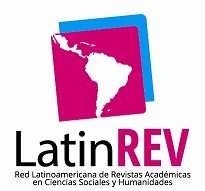The Russian Cosmism
Konstantin Tsilkovsky and space travel
DOI:
https://doi.org/10.11606/issn.2447-2158.i12p1-17Keywords:
Cosmism, Tsiolkovsky, Science, space travel, occult knowledge.Abstract
The Soviet Space Program was an important milestone in the history of the communist republics. In 1957 the USSR launches the first object into orbit, the Sputnik satellite, and in 1961 the Vostok spacecraft takes Iuri Gagarin (1934-1968), the first man to go into space. The Soviets are way ahead of their biggest opponent at the time, the United States. But this entire enterprise was responsible for a self-taught mathematician from a small Russian town called Kaluga. His name was Konstantin Tsiolkovsky (1857–1935), responsible for the mathematical equation that would enable the USSR to catapult its rockets and history into modernity.
Downloads
References
CARVALHO, Caio. Humanos que forem a Marte nunca mais voltarão à Terra. Canaltech, 09/02/2015. Disponível em: https://canaltech.com.br/campus-party/Humanos-que-forem-a-Marte-nunca-mais-voltarao-a-Terra-diz-criador-da-Mars-One/. Acesso em: 23/06/2021.
COSMIC Imagination in Revolutionary Russia. Cosmonaut, 2020. Disponível em: https://cosmonaut.blog/2019/05/20/cosmic-imagination-in-revolutionary-russia/#easy-footnote-bottom-12-1642. Acesso em: 28 Maio 2021.
HAGEMEISTER, Michael. Konstantin Tsiolkovski and the Occult roots of Soviet Space travel. In: MENZEL, Birgit.
HAGEMEISTER, Michael and ROSENTHAL, Bernice. The new age of Russia Occult and Esoteric dimensions. Berlin: Kubon & Sagner, 2012.
HAGEMEISTER, Michael. Russian Cosmim in the 1920s and today. In: ROSENTHAL, Bernice Glatzer. The occult in Russia and Soviet Culture. Ithaca and London: Cornell University Press, 1997.
LARDIER, Christian. L’Astronautique soviètique. Paris: Armand Colin, 1992.
LARUELLE, Marlène. Totalitarian utopia, the occult, and technological modernity in Russia: the intelectual experience of cosmism. In: MENZEL, Birgit; HAGEMEISTER, Michael and ROSENTHAL, Bernice G. The new age of Russia. Munique: Kubon & Sagner.Gmbh, 2012.
MENZEL, Birgit. Transhumanism in the West and in Russia – Historical roots of Techno-utopian thinking and contemporary projects. Pomona College/CA, 2013. Disponível em: Transhumanism_in_the_West_and_in_Russia1.pdf. Acesso em: 30/06/2021.
MORAES, Fabrício Tavares. O cosmismo russo. Disponível em: https://estadodaarte.estadao.com.br/o-cosmismo-russo/. Acesso: 27/06/2020.
NEUFELD, Michael. The Three Heroes of Spacefight? The rise of the Tsiolkovski – Godard – Oberth. Interpretarion and its Current Validity. Vol. 19, n. 4, 2012. (www.spacehistory10.com). Acesso em: 06/06/2021.
SALDANHA, Núria. Caminho para Parte: Por que o homem precisa chegar ao planeta vermelho? Disponível em: https://www.cnnbrasil.com.br/tecnologia/2021/05/03/caminho-para-marte-por-que-o-homem-precisa-chegar-ao-planeta-vermelho. Acesso em 27/06/2021.
SIDDIQI, Asif A. Imagining the Cosmos: Utopians, Mystics and the Popular Culture of Spacefight in Revolutionary Russia. In: Osiris, Second Series, vol. 23, Intelligensia Science: The Russian Century, 1860 – 1960 (2008), pp. 260 – 288.
SIDDIQI, Asif A. Tsiolkovski and the invention of ‘Russian Cosmism’? Science, Mysticism and the Conquest of Nature at the Birth of Societ Space Exploration. In: BETTS, Paul and SMITH, Stephen A. Science, religion and communism in cold war Europe. London: Palgrave, Mcmillian, 2016.
SIMAKOVA, Marina. No man’s space: on Russan Cosmism. E-flux journal #74 – june 2016. Disponível em: https://www.e-flux.com/journal/74/59823/no-man-s-space-on-russian-cosmism/. Acesso em: 13/07/2021.
WINTER, O.; PRADO, A. (Org). A conquista do espaço. Do Sputnik à Missão Centenário. São Paulo: Livraria da Física, 2007.
Downloads
Published
Issue
Section
License
Copyright (c) 2021 Maria Rita Guercio

This work is licensed under a Creative Commons Attribution-NonCommercial 4.0 International License.
Authors who publish in this journal agree to the following terms:
- Authors retain the copyright and grant the journal the right to first publication, with the work simultaneously licensed under the Creative Commons Attribution License in the "Attribution-NonCommercial 4.0 International" (CC BY-NC 4.0) modality that allows sharing of the work with acknowledgment of authorship and initial publication in this magazine.
- Authors are authorized to assume additional contracts separately, for non-exclusive distribution of the version of the work published in this journal (eg, publishing in institutional repository or as a book chapter), with acknowledgment of authorship and initial publication in this journal.
- Authors are allowed and encouraged to publish and distribute their work online (eg in institutional repositories or on their personal page) at any point before or during the editorial process, as this can generate productive changes, as well as increase impact and citation of the published work (See The Effect of Open Access).
- Any doubts or complaints about copyright must be directed to the Editorial Board or qualify and express themselves in accordance with the guidelines of the Committee on Publications Ethics (COPE).





